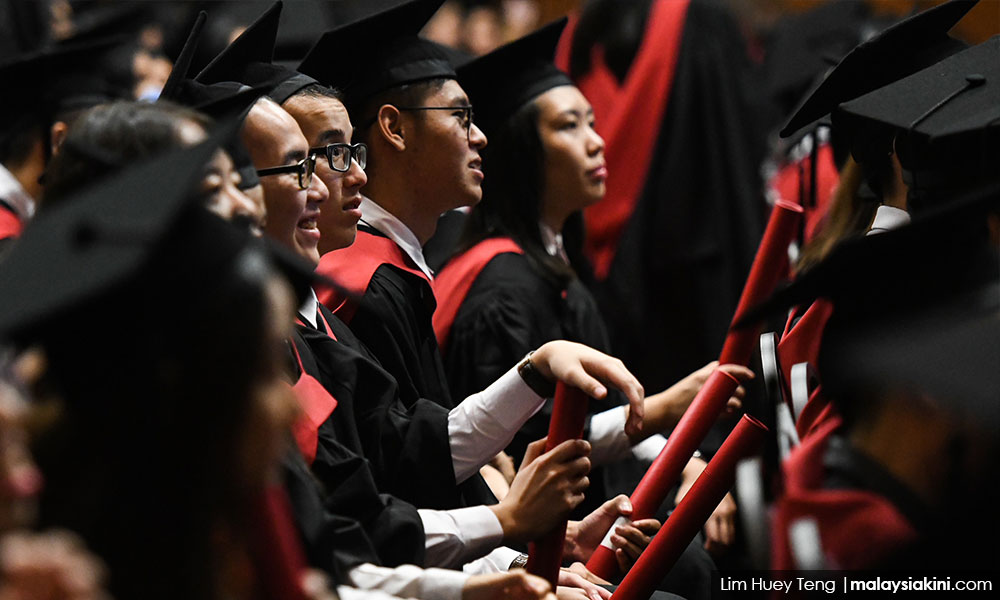COMMENT | "An inch ahead in politics is complete darkness," goes one Japanese proverb. Given the extent to which parents, teachers, and educationists are concerned with the state of the education in Malaysia - they should be - it goes without saying that Malaysia is close to embodying that proverbial inch ahead.
Clamours for reforms have led to fear, perhaps white panic, that Malaysia is getting education wrong at least three levels, even as the world is becoming more knowledge driven. Primary, secondary and tertiary education outcomes seem to be more and more dysfunctional.
Worse, Malaysian education officials in charge of nominating and testing our schools according to the world-renowned (Programme of International Students' Assessment (Pisa) test, ostensibly, seem to be skewing the assessment to get a better score too; as revealed by Bangi parliamentarian Ong Kian Ming
Indeed, instead of allowing at least 85 percent of Malaysian schools to take the once in three years Pisa test in 2015 - this measures the learning outcomes of a normal 15-year-old student in a knowledge society - the Education Ministry only allowed 51 percent to take part; thus invalidating the objectivity of the score entirely since 30 percent of the schools that participated in the 51 percent sample came from fully residential schools.
The latter tend to have better learning facilities and infrastructures that make learning measurable, which in turn, creates room for quarterly improvement.
When secondary and tertiary systems of education, paid for by taxpayers, are not able to operate accordingly, it goes without saying that there will be a serious skill mismatch. Thus, the unemployment rate of Malaysian graduates is three times the national average of four percent.
When Malaysian graduates, by the age of 23 to 24, cannot gain stable employment, they will be looking at an abyss that includes the inability to afford a first home, to support his or her parents and indeed, the inability to have his or her own family, too.
But when officials from the Education Ministry cannot get it right, nor the university administrators, then it goes without saying that Malaysia is practically in a black hole. Why?

In the QS University ranking two weeks ago, Universiti Malaya (UM) was in 87th spot. Before one starts celebrating that this was a marked improvement from before, look at the ranking of Universiti Kebangsaan Malaysia (UKM).
UKM was built in 1980 to promote the use of the national language. And, for those not in the know, Bahasa Malaysia can indeed be a very scientific language. Some of the best Malaysian doctors were trained in UKM in the 1980s and the trend remains. Many went on to become specialists too. Yet UKM is sliding badly.
UKM is at 184th position now, while Universiti Putra Malaysia (UPM) is ranked 202nd and Universiti Sains Malaysia (USM), which used to be an "apex" university in Malaysia that deserves higher funding from the government, is 207th.
One doesn't even need to talk about International Islamic University (IIUM) which was pioneered by Dr Mahathir Mohamad and Anwar Ibrahim in the late 1980s which uses English as a medium of instruction...

